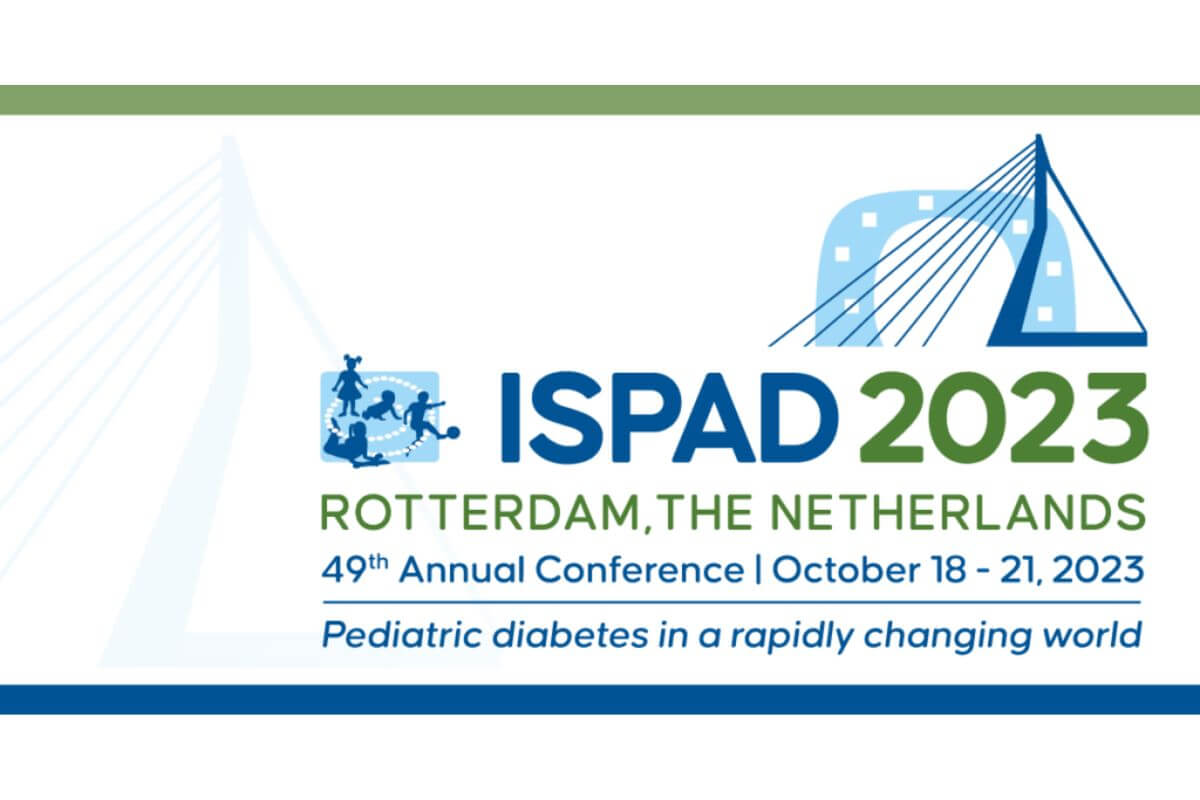ISPAD Annual Conference Highlights Include Tzield, Kidney Disease Clinical Trial Updates

Leading diabetes researchers gathered for the annual conference of the International Society for Pediatric and Adolescent Diabetes (ISPAD), which took place from October 18-21 in Rotterdam, The Netherlands, and had more than 1,600 attendees—its largest-ever audience.
More than 45 studies were presented by JDRF researchers, funded now or in the past, working to find cures for type 1 diabetes (T1D) and improve the lives of those living with the condition today. Here are some of the highlights:
- Presented by Kevan Herold, M.D., and published in the New England Journal of Medicine, the phase III PROTECT clinical trial investigated whether Tzield™ (teplizumab-mzwv) can slow the loss of beta cells and preserve beta cell function in newly diagnosed (stage 3 T1D) children and adolescents ages 8-17. Per the study results, it can. Participants treated with Tzield had:
- Significantly greater stimulated C-peptide levels (a measure for insulin secretion) compared with placebo
- Tended to use lower insulin doses to meet glycemic goals
- Experienced higher rates of predefined clinical remission, defined as participants who achieved HbA1c ≤6.5% and insulin daily dose ≤0.25 U/kg/day
- Conclusion: Tzield has the potential to slow the progression of Stage 3 T1D and improve clinical parameters in newly diagnosed individuals.
Dr. Herold has been supported by JDRF since the late 1980s. In his research, he showed that he could prevent autoimmune diabetes with an immune-modifying antibody (which, later, became a humanized version, Tzield) and was the lead on the clinical trial that demonstrated that Tzield could delay the onset of T1D in people almost certain to develop the disease. In November 2022, Tzield was approved by the FDA to delay the onset of the disease (Stage 3) in at-risk (Stage 2) individuals ages 8+.
- In a joint ISPAD-JDRF symposium about global pediatric diabetes development, we heard from Tom Robinson, who heads the T1D Index. The Index leverages machine learning models to estimate the incidence of T1D around the globe. According to the Index, in access to care and quality of life most significantly affect low- and middle-income countries. Robinson pointed to four key areas of intervention to address the global T1D crisis, which ISPAD and JDRF are working to address:
- Increasing diagnosis and screening efforts
- Access to insulin and strips, as well as proper coaching for use
- Device access
- Facilitating prevention and cures
- Manuela Battaglia, Ph.D., discussed impediments in the T1D therapy research and development pipeline and how INNODIA—an international public-private partnership, with JDRF and others support—is addressing the problem. Established in 2015, INNODIA was launched to accelerate the development of new disease-modifying therapies for T1D by fostering the creation of centers of excellence and by building a global network of members and experts. INNODIA now has four intervention clinical trials, paving the way for the development of novel treatments to prevent and find cures for T1D.
- In the complications space, Farid Mahmud, M.D., a JDRF grantee since 2017, presented on the need for better blood biomarkers to earlier identify diabetic kidney disease. In his JDRF-funded ATTEMPT clinical trial, which examines the impact of SGLT2 inhibitors (such as Jardiance®) on adolescents and young adults with T1D, he is investigating whether decreasing how much glucose is absorbed by the kidney is beneficial in diabetes-related complications. The study has already enrolled 98 out of 100 participants and is set to complete in mid-2024.
The next conferences we’ll be covering are the:
- Network for Pancreatic Organ Donors with Diabetes (nPOD), from February 19-22, 2024, in Long Beach, California
- Advanced Technologies & Treatments for Diabetes (ATTD), from March 6-9, 2024, in Florence, Italy (and online)
Stay tuned for a precap and recap of these terrific meetings!